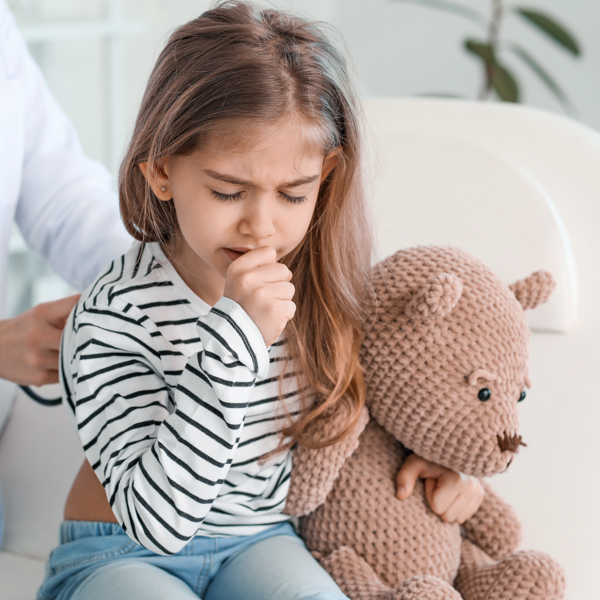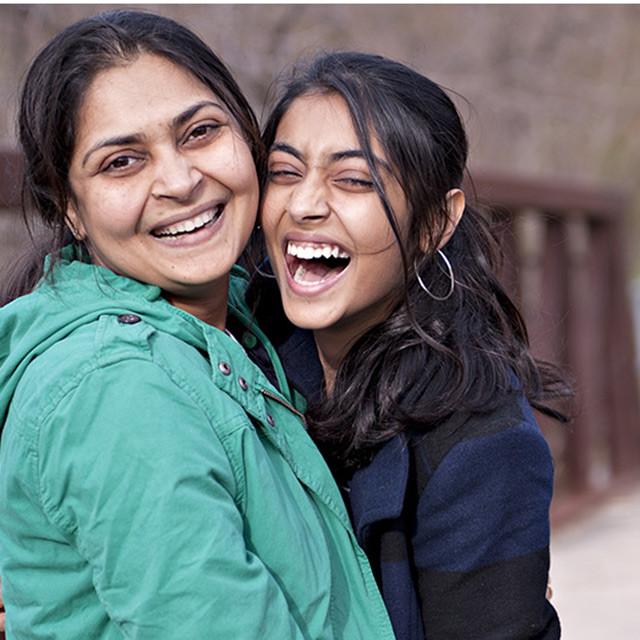Parents: Your child doesn’t have to suffer like you did.
If you grew up with asthma, you probably remember being cautioned against running too much on the playground, getting sidelined from sports and maybe even spending an evening or two in the ER when an asthma attack got out of control. But guess what? That doesn’t have to be your child’s fate. That’s because asthma care has come a long way in the past 25 years.
A better understanding
Prior to the 1990s, it was assumed that asthma affected children of all ages similarly, even though research had actually only been done on older kids with asthma.
“We’ve really had a substantial advance in our understanding of what asthma is in children, why it develops and how it affects children across the entire pediatric age range.”
“What we knew about asthma and young children at the time was largely based on anecdote rather than research,” said Dr. Leonard B. Bacharier, an expert in pediatric allergy, immunology and pulmonary medicine at Monroe Carell Jr. Children’s Hospital at Vanderbilt.
Since then, asthma researchers — including Bacharier — have conducted numerous studies that have provided the pediatric community a better understanding of childhood asthma.
“We’ve really had a substantial advance in our understanding of what asthma is in children, why it develops and how it affects children across the entire pediatric age range,” Bacharier said.
The importance of personalized care
Not only have researchers learned how asthma develops among children of varying ages, but they’ve also identified the need to treat asthma individually based on type: mild, moderate or severe.
Asthma management is no longer one-size-fits-all. “Now our strategies are targeted to the type of disease you have.”
“Over the past twenty-five years or so, we’ve really had an era where there’s been an awful lot of research done in children to understand what treatment approaches do and don’t work for various types of asthma,” Bacharier said.
And that means asthma management is no longer one-size-fits-all.
“It used to be that if you have asthma, this is how we treat you,” Bacharier said. “Now our strategies are targeted to the type of disease you have. So there are patients who have very mild disease who are treated differently than children who have more moderate disease who are treated differently than those who have the most severe disease.”
Improvements in preventive care
With a better understanding of asthma and how it functions in children, researchers have been able to develop new therapies, with the most significant advancements being in preventive care.
“Now we focus on preventing these episodes from happening in the first place.”
“Bronchodilators and oral steroids are still the therapies of choice when someone is having a severe episode that requires emergency care,” Bacharier said. “However, we’ve gone beyond that to focus on preventing these episodes from happening in the first place.”
As a result, pediatric asthma experts, including Bacharier, have established care guidelines for the management of asthma and update them annually (published by the Global Initiative for Asthma). These guidelines have helped to standardize asthma care by age and type and have enabled pediatricians and family-practice providers to remain up to date on asthma care protocols.
When to talk to your child’s doctor
If you have any concerns about your child’s asthma, talk to your child’s doctor about their care plan. Most cases of childhood asthma can be managed by a pediatrician or family-practice provider. More severe and uncontrolled cases should be managed by a pediatric asthma specialist.
“We want folks to be in a position where asthma doesn’t define them.”
“Unfortunately, most families come in with stories of a birthday party ruined or a family vacation ruined because of their kid’s asthma. And because asthma runs in families, the parent more often than not thinks that’s normal because that’s the way their life was growing up,” Bacharier said. “But we want folks to be in a position where asthma doesn’t define them, where it doesn’t get in the way of their lives. And with the advances we’ve made in asthma care, we can do that nowadays.”

Help for your child’s asthma
The Pediatric Asthma Clinic at Monroe Carell Jr. Children’s Hospital at Vanderbilt provides in-depth asthma testing for children and teens, and personalized care for their unique needs.




